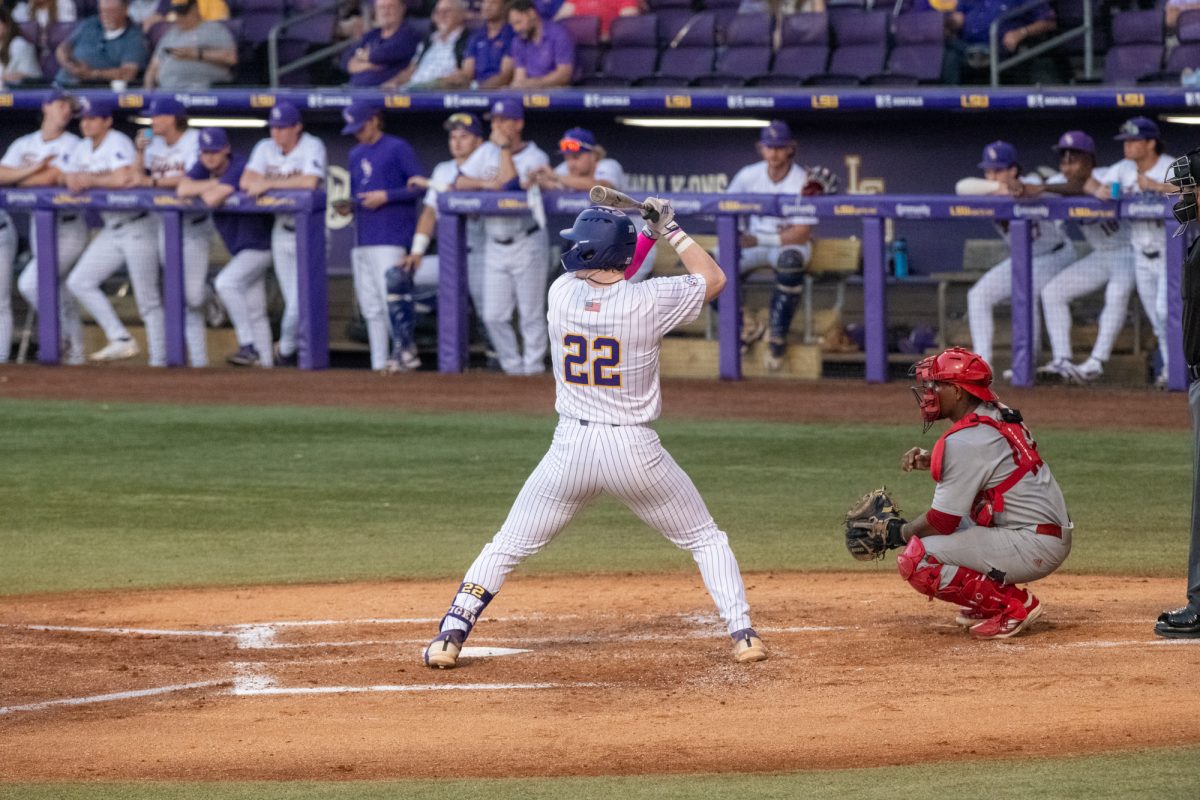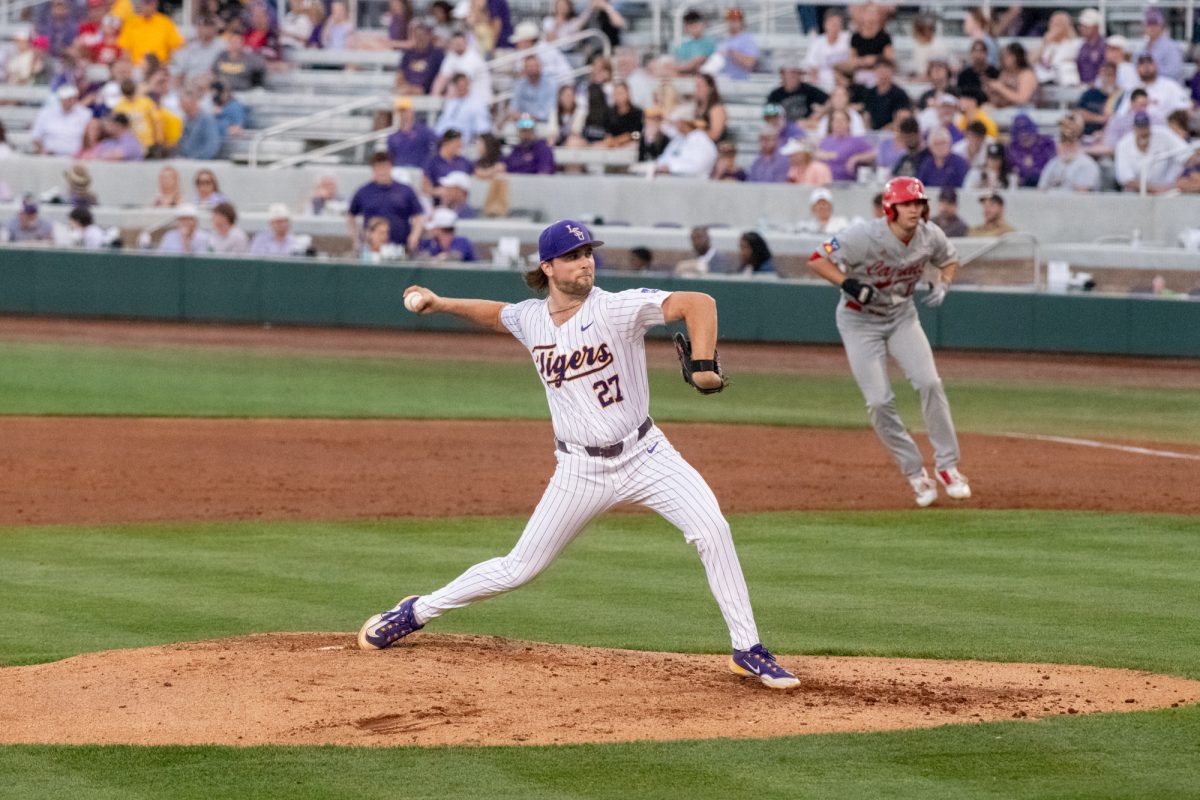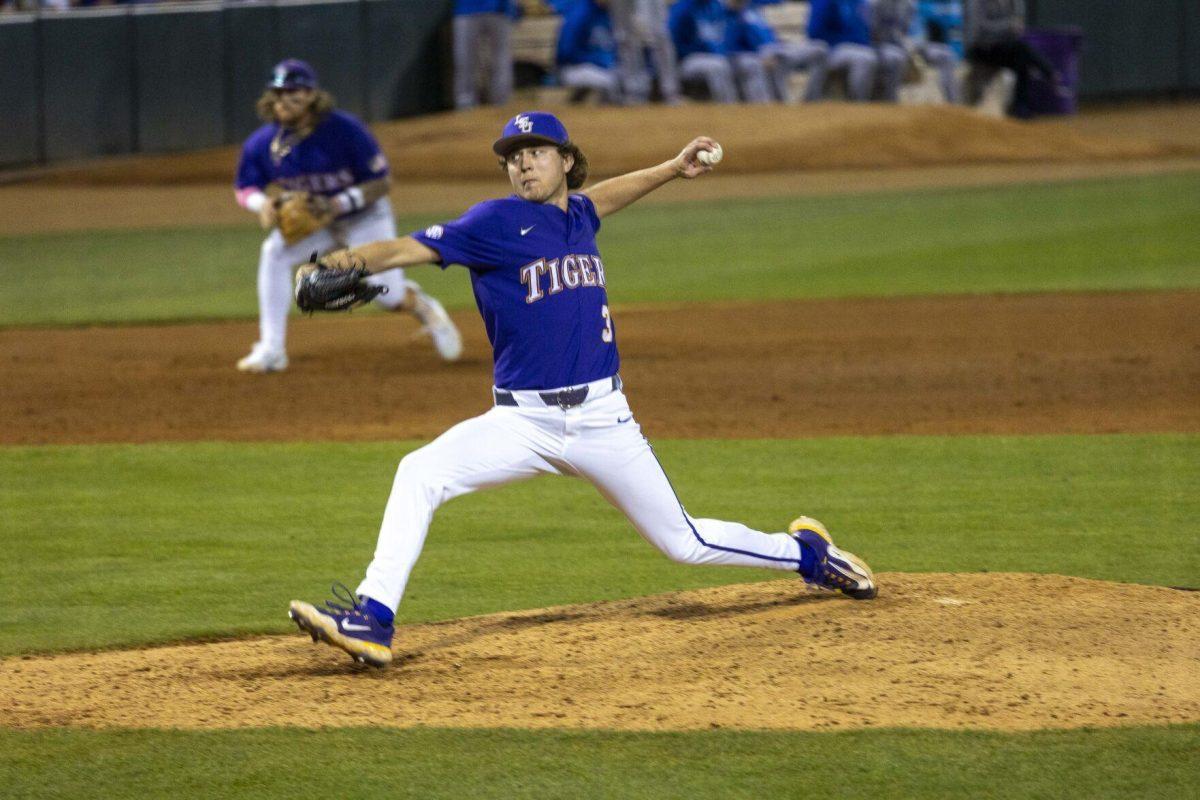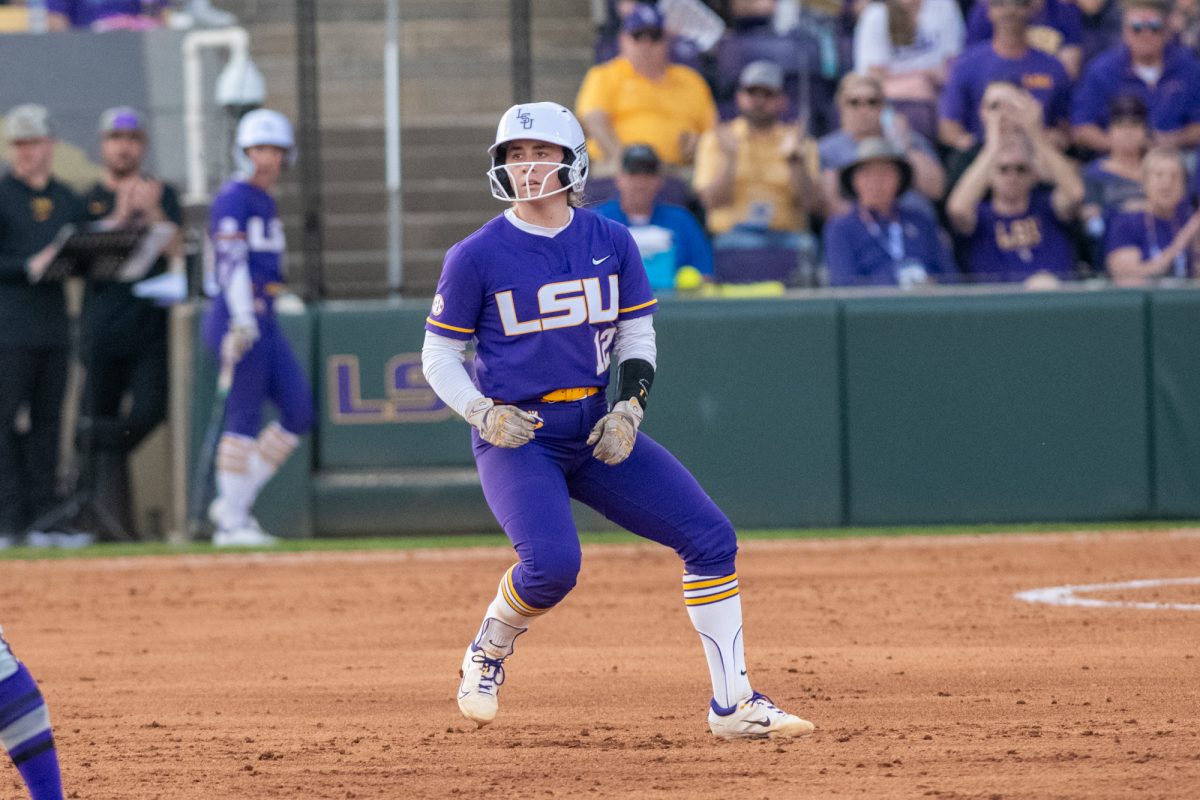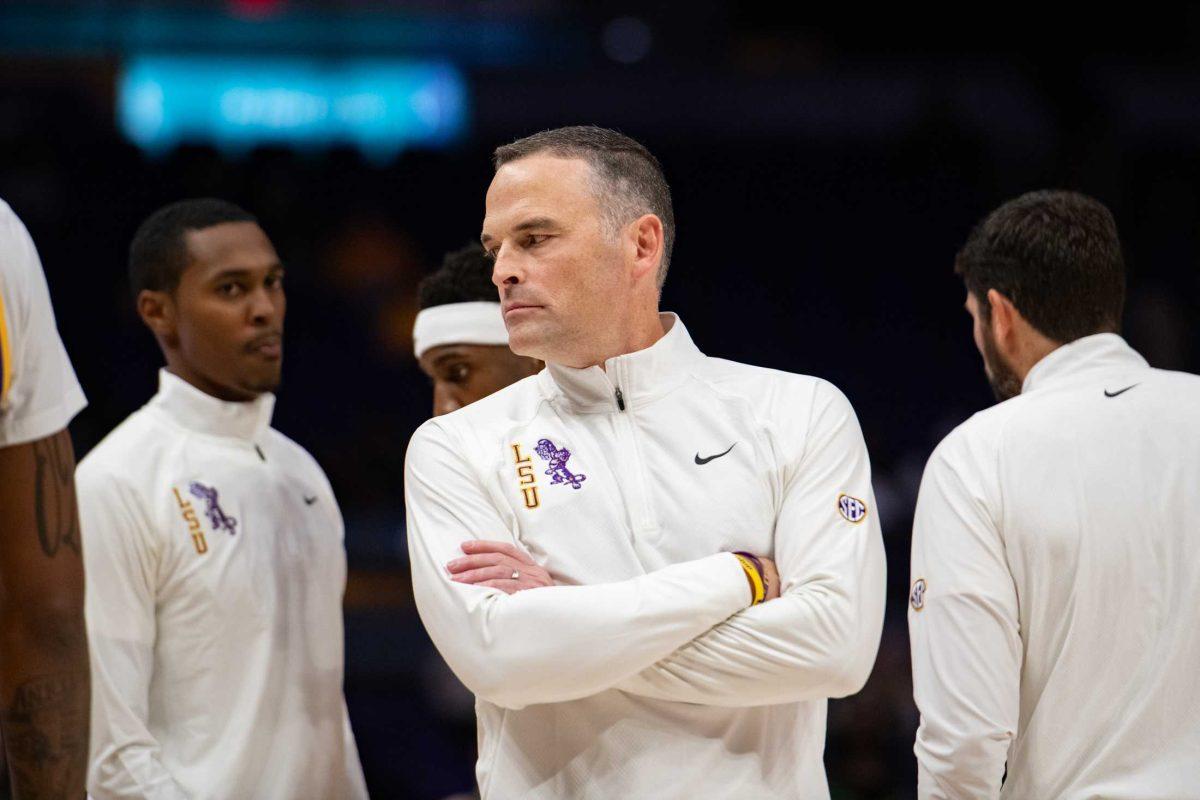Aaron Nola was at the top of his game on May 9, 2018, against the San Francisco Giants. At age 24, he struck out 12 batters in only seven innings.
Everything was working from his 95 miles per hour fastball to his devastating curveball that had hitters off-balance throughout the night.
The former LSU standout pitcher, and member of the Philadelphia Phillies, has already been mentioned as one of the best pitchers in the game. Two years after that night against the Giants, Nola has been selected to an All-Star game with 53 career wins.
Now this success is being threatened by the scandal plaguing Major League Baseball.
Baseball has been around for 150 years and has faced multiple disgraces from domestic violence to performance enhancing drugs, but the current “sign stealing” scandal shows modern technology can bring about its own set of problems.
The scandal came to the forefront when the Houston Astros were accused of using cameras to relay the opposing pitchers’ signs to players while they are batting, so they know what type of pitch is coming. The Boston Red Sox have also been linked to the scandal, but have not been formally accused by the MLB.
The 2017 World Series-winning Houston Astros have faced the only punishments concerning the scandal thus far. MLB Commissioner Rob Manfred took Houston’s first and second round draft picks for the 2020-21 drafts and fined the Astros $5 million.
The Astros also handed down punishments of their own, by firing manager A.J. Hinch and general manager Jeff Luhnow.
While Nola has never faced the Astros, he understands the gravity of the situation.
“It makes it tough, especially for guys that are getting called up [from the minor leagues] and pitching over there and getting their signs stolen and then sent back down,” Nola said “That can be hard to swallow.”
Nola grinded in Minor League Baseball for close to a year and knows that no pticher wants to get his signs stolen, especially pitchers that have worked hard to get a chance and see it destroyed by unfair tactics.
Aaron is not the only Nola in the major leagues, either. His brother Austin has recently found a home with the Seattle Mariners, but has not had the instant success that his brother experienced early in his career.
Austin Nola, 30, won a College World Series with LSU in 2009, but achievements have been hard to grasp since that victory in Omaha.
Austin spent nearly four years in Minor League Baseball, attempting to play multiple positions and earn a roster spot, but he could not seem to find his way into the MLB until the Miami Marlins gave him a chance in 2016.
While Austin did not play a team accused of cheating, he understands that this opportunity does not come along often and cheating should not stand in the way of hard work.
“I think we all have an obligation to stay clean,” Austin said. “Unfortunately, we have to continue to go play and continue to do things the way we do it.”
Yet, the scandal did not seem to bother him as he focused more on faith, teamwork and offered a simple solution to clean up the dilemma.
“It doesn’t bother me at the end of the day,” Austin said. “Honestly, the team effort can always overcome the cheating.”
The two former LSU stars echoed similar messages: fight through the adversity.
LSU head coach Paul Mainieri—who coached both Nola brothers at LSU—agrees this scandal should be addressed, but the solution might start at the college level and show that quality baseball can be played without using unnecessary technology.
No accounts have come out yet that any college team has ever attempted to steal signs, but Mainieri has said that standards have to change.
“I hear whispers,” Mainieri said. “Major League Baseball has so much more resources to govern that kind of thing. I don’t know if we will ever have those kinds of resources.
“When you are using technology as a home team, you are gaining an advantage that I do not think should be allowed. There is a word for that, and it’s called cheating.”
The 13-year LSU coach opposes cheating in his clubhouse and top returning pitcher Cole Henry, who has drawn similarities to Aaron Nola, says that cheating will never be a problem at LSU.
“I know it’s not really fun to pitch when your signs are stolen,” Henry said. “Overall, I just think going out there and pitching my game. I try not to think about it.”
The attitude around the clubhouse is one of keeping on the path that got them to the Super Regionals a year ago—commitment and putting their heads to the grindstone.
Two of the past three World Series champions—the Boston Red Sox and Houston Astros—have been linked to the scandal. That kind of success can be tempting to try at any level of the game.
Yet, everyone around the LSU program wants the problems to be fixed above them but do not see the necessity of dwelling on the situation. Veteran catcher Saul Garza realizes the importance of keeping the game he loves clean, and it all starts with by leading example.
“Obviously now technology has evolved,” Garza said. “We had a pretty long meeting with all the pitchers and catchers, just trying to get the signs right going into the season.
“I think it is definitely something that needs to be addressed as a part of the game, but, as far as us, we are trying to do the things the way we can and the right way.”
From the MLB down to the collegiate level, the LSU response seems to shout the need for internal development as opposed to lashing out to others. A calm attitude that addresses the need to stop cheating everywhere by staying only focused on personal discipline.
The Nola brothers will try to fight their way to a World Series by playing the game the only way they know how to play it—clean, while coach Mainieri guarantees one thing:
“Nobody at LSU will ever do those kinds of things [sign stealing],” Mainieri said. “When we hold that trophy up, we are going to know that we earned it the right way.”
Column: Current, former LSU baseball players look internally to deal with the sign stealing scandal
By Myles Kuss
February 5, 2020
Philadelphia Phillies starting pitcher Aaron Nola throws during the first inning of a baseball game against the Tampa Bay Rays, Tuesday, July 21, 2015, in Philadelphia. (AP Photo/Chris Szagola)
More to Discover





